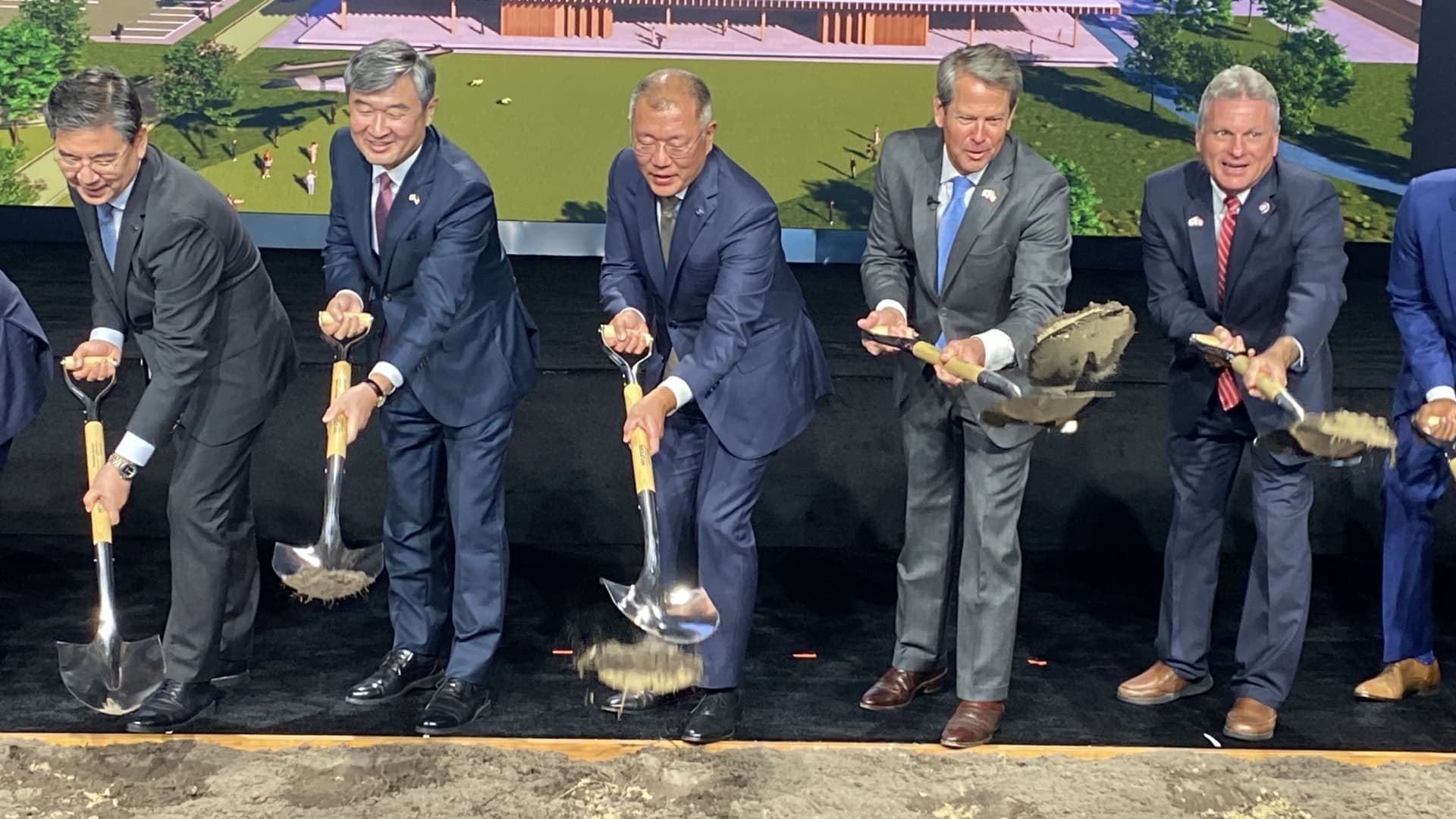SAVANNAH, Ga. – South Korean officials are working closely with the U.S. government to adjust restrictive regulations on electric vehicles under the recently passed Inflation Reduction Act, according to the county’s ambassador.
Cho Tae-yong, ambassador of the Republic of Korea to the U.S., said Tuesday officials are discussing “several possible options” to correct what the country believes to be unfair policies that eliminated up to $7,500 of tax credits for EVs produced outside North America.
“We are in very intense conversation at the moment,” Cho said Tuesday following the groundbreaking of a $5.5 billion electric vehicle plant by Hyundai Motor Group near Savannah, Georgia. “There is a great wealth of goodwill and determination to find a solution on both sides.”
Cho declined to discuss potential solutions, but said they are “racking our brains to come up with all possible avenues for solutions, big and small.” He said some solutions may require approval by the Biden administration, while others would have to involve Congress.
Under the IRA, plug-in electric vehicles much be produced in North America to qualify for the tax incentives. Previously, all plug-in EVs were eligible.
Hyundai, including Kia, is the second-best seller of all-electric vehicles in the U.S. behind Tesla. The company has contended the Inflation Reduction Act is unfair, as South Korea — where it currently produces its electric vehicles — has a free trade agreement with the U.S.
Jose Munoz, Hyundai global president and chief operating officer, on Tuesday told media that the company is “much involved” in discussions with officials from both the U.S. and South Korea regarding the Inflation Reduction Act.
Without changes to the regulations, Munoz said the company’s vehicles would likely not be eligible for U.S. EV credits until early 2026 when its joint venture battery plant is expected to come online.
The current regulations would phase in stricter sourcing requirements regarding parts and raw materials for the batteries. They are designed to loosen the auto industry’s dependency on such materials from China.
Munoz last week described the loss of the credits as a huge blow to the automaker’s bottom line. Hyundai and others are lobbying for some of those requirements to be reversed. Hyundai and Kia operate their businesses separately in the U.S. but are owned by Hyundai Motor Group.
U.S. Deputy Secretary of Commerce Don Graves during the event on Tuesday called South Korea a strong trade partner, but did not comment on the Inflation Reduction Act. Last week, U.S. Trade Representative Katherine Tai spoke with Korea’s minister for trade, Ahn Dukgeun, about the IRA.
The new “Metaplant America,” located west of Savannah in Bryan County, is expected to open during the first half of 2025, with an annual production capacity of 300,000 vehicles.
Hyundai expects to produce a wide range of full-electric vehicles for U.S. customers at the new plant as well as batteries for the vehicles.
“This is going to be a massive operation with a scale that’s hard to comprehend,” Munoz said Tuesday.
Correction: Cho Tae-yong is ambassador of the Republic of Korea to the U.S. An earlier version of this story misstated his title.
